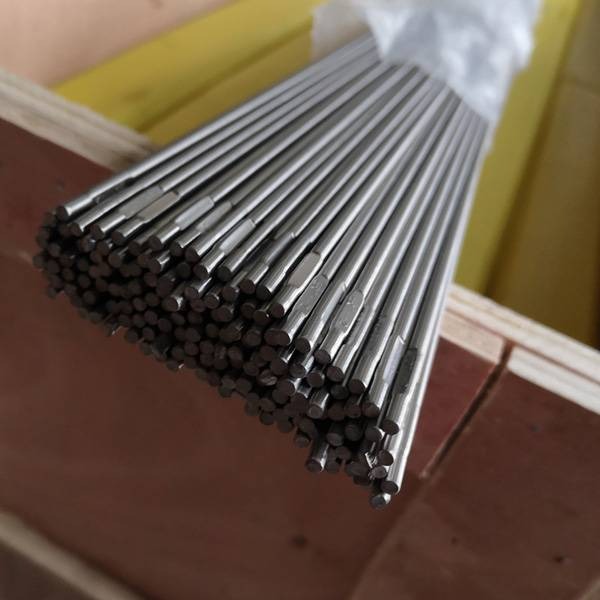Welding nickel alloys requires precision, high-quality materials, and the right filler metal to ensure strength, durability, and corrosion resistance. Among the many options available, ERNiMo-3 stands out as one of the most reliable and widely used filler metals for welding nickel-based alloys. Its ability to perform under extreme conditions makes it the go-to choice in industries such as chemical processing, marine engineering, and power generation.
In this blog, we’ll explore what ERNiMo-3 is, its composition, advantages, applications, and why it is considered the ideal filler metal for nickel alloy welding.
Understanding ERNiMo-3
ERNiMo-3 is a nickel-chromium-molybdenum alloy filler metal specifically designed for welding nickel-based alloys such as Inconel 625 and Incoloy 825. It is classified under the American Welding Society (AWS) specifications and is widely recognized for its outstanding mechanical properties and resistance to harsh environments.
-
Type: Nickel-Chromium-Molybdenum (Ni-Cr-Mo) alloy filler metal
-
Primary Usage: Welding Ni-Cr-Mo alloys and dissimilar joints involving stainless steels and nickel alloys
-
Standards: Classified as AWS A5.14 ERNiMo-3
This filler metal is often used in gas tungsten arc welding (GTAW) and gas metal arc welding (GMAW) processes, making it versatile across multiple welding applications.
Chemical Composition of ERNiMo-3
The unique properties of ERNiMo-3 come from its carefully balanced chemical composition:
-
Nickel (Ni): Base element, provides toughness and corrosion resistance.
-
Chromium (Cr): Enhances oxidation resistance and strength.
-
Molybdenum (Mo): Improves resistance to reducing acids and pitting corrosion.
-
Iron (Fe): Present in controlled amounts for weldability.
This combination ensures welds maintain their structural integrity even in chloride-rich, acidic, or high-temperature environments.
Key Properties of ERNiMo-3
The performance of ERNiMo-3 filler metal is unmatched due to its unique set of properties:
1. Excellent Corrosion Resistance
ERNiMo-3 provides exceptional resistance to both oxidizing and reducing environments, making it ideal for welding components exposed to acids, seawater, and aggressive chemicals.
2. High Strength at Elevated Temperatures
This filler metal maintains mechanical strength and toughness even above 1000°F (538°C), ensuring long-term durability in demanding industries.
3. Resistance to Stress Corrosion Cracking
In environments prone to chloride-induced cracking, ERNiMo-3 resists failure, which is crucial for marine and chemical processing equipment.
4. Versatile Welding Compatibility
ERNiMo-3 can be used for nickel alloys, stainless steels, and dissimilar joints, providing welders with unmatched flexibility.
5. Smooth Weldability
It produces welds with good bead appearance, low spatter, and excellent metallurgical stability, reducing the risk of defects.
Applications of ERNiMo-3
The demand for ERNiMo-3 filler metal is high in industries where safety, performance, and corrosion resistance are critical. Below are some key application areas:
1. Chemical Processing Industry
-
Used in welding components exposed to sulfuric acid, phosphoric acid, and chlorides.
-
Common for pressure vessels, heat exchangers, and reactor systems.
2. Marine Engineering
-
Ideal for welding seawater-exposed equipment such as pumps, valves, and piping systems.
-
Prevents pitting and crevice corrosion in oceanic environments.
3. Aerospace and Power Generation
-
Used in high-temperature environments such as gas turbines, jet engines, and exhaust systems.
-
Maintains structural integrity under thermal cycling.
4. Oil & Gas Industry
-
Widely used in offshore drilling platforms, pipelines, and processing units.
-
Resists corrosion from hydrocarbons, acids, and chlorides.
5. Nuclear Applications
-
Used in environments with radioactive and corrosive chemicals, ensuring safe and long-term performance.
Why ERNiMo-3 is Preferred Over Other Filler Metals
While there are several filler metals available for nickel alloy welding, ERNiMo-3 is often the first choice due to its unique balance of strength, corrosion resistance, and weldability.
-
Compared to stainless steel fillers: ERNiMo-3 provides better resistance to pitting, stress corrosion, and acids.
-
Compared to lower nickel fillers: It maintains toughness at higher temperatures and in more aggressive environments.
-
Compared to generic Ni-Cr fillers: The addition of molybdenum makes ERNiMo-3 superior in acidic and reducing conditions.
Best Practices for Welding with ERNiMo-3
To achieve optimal results with ERNiMo-3, welders must follow proper techniques and guidelines:
1. Pre-Weld Preparation
-
Clean surfaces thoroughly to remove oil, dirt, and oxides.
-
Use correct joint design to minimize stress concentrations.
2. Welding Parameters
-
Recommended for GTAW (TIG) and GMAW (MIG) processes.
-
Use shielding gas mixtures like argon or helium-argon blends.
3. Post-Weld Practices
-
Inspect welds for cracks, porosity, or inclusions.
-
Perform post-weld heat treatment (if required) to relieve residual stresses.
4. Storage & Handling
-
Store ERNiMo-3 filler wire in dry, controlled environments to prevent contamination.
-
Handle with clean gloves to maintain weld integrity.
Benefits of Choosing ERNiMo-3
To summarize, the key benefits of ERNiMo-3 include:
-
Superior corrosion resistance in both oxidizing and reducing conditions.
-
High mechanical strength at elevated temperatures.
-
Resistance to stress corrosion cracking and pitting.
-
Versatility in welding different nickel alloys and dissimilar metals.
-
Consistent weld quality with excellent bead appearance.
Future of Nickel Alloy Welding with ERNiMo-3
As industries continue to evolve, the demand for high-performance materials like ERNiMo-3 will only increase. With growing applications in renewable energy, aerospace advancements, and next-generation chemical processing, this filler metal will remain a key solution for critical welding needs.
Conclusion
When it comes to welding nickel alloys, ERNiMo-3 is the ideal filler metal that ensures durability, resistance to harsh environments, and long-term reliability. From marine applications to chemical processing and aerospace engineering, its unmatched performance makes it the preferred choice of welders and engineers worldwide.

